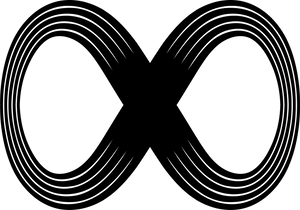Although we typically tend to associate ‘hormonal’ with a purely female scenario, having balanced, healthy hormonal production is crucial for both men and women, and a lot of the advice I’m going to give in this blog post is relevant for both - so chaps, don’t shy away at the title of this post!
Having adequate hormonal production is crucial for wellbeing, to feel energetic, to get good sleep, to have good brain function, to be able to initiate an adequate stress response and so much more. So many of our body’s processes are controlled by hormones, but the balance is pretty delicate and these days can often get dysregulated due to lifestyle, diet, stress and so many more 21st Century life factors! Yes - we’re up against it, but that doesn't mean you can’t learn how to balance your hormones in spite of this and get your health back on track.
I want to touch quickly on PMS and periods - and gents, don’t switch off! I’m sure you have a significant woman in your life that suffers from a monthly cycle of mood swings, period pain and the rest of it! So let me tell you all this: PMS and period pain are common, but not normal. That’s right, we shouldn’t have to experience crippling pain every month, heavy periods, mood swings, irritability etc, but most of us do. So why?
It’s all down to having a hormonal profile that’s out of balance and typically these days we tend to be oestrogen dominant, which contributes to PMS and period pain in women and Gynecomastia (i.e. man boobs) in men. Progesterone, on the other hand, is protective as it:
- Balances Oestrogen
- Is anti-stress
- Pro-thyroid
- Reduces Inflammation
- Promotes good sleep
- Helps regulate blood sugar
In many cases we aren’t actually producing enough progesterone to reap the benefits that therapeutic levels of progesterone have in the body. To exacerbate this imbalance yet further our environments these days are full of oestrogen like compounds called xenoestrogens, which attach to oestrogen receptors in the body and lead to a condition of oestrogen dominance which affects men and women. Here are a few sources of xenoestrogens to watch out for:
- Chemical Cleaning Products
- Non-natural cosmetics
- Pesticides and herbicides (i.e. non organic fruit and veg)
- Pollution
- Medications
- Plastics (eg food wrap, drinking bottles, food containers, etc)
- Cosmetics
- Cookware
- Food storage
So cleaning up your environment is an easy and quick way to support your body’s natural hormone production.

Diet is another fast and effective way to support your hormonal health as maintaining steady blood sugar levels is linked to a reduction in PCOS, Polycystic Ovarian Syndrome, which affects 1 in 10 women. Avoiding sugar spikes and insulin secretion continuously throughout the day is the best way to support your blood sugar - that means lots of fibre, good quality sources of protein and healthy fats, rather than simple carbohydrates and sugars. I’m incredibly passionate about this here at 8foods which is why all of our products are keto, low carb and low sugar - they’re blood sugar friendly!
Diet also has a crucial role to play in supporting hormone production itself. All of our hormones are made from cholesterol made in the liver and gut from saturated fats and carbohydrates. Cholesterol is converted into a hormone called pregnenolone but only if there’s enough T3 (a thyroid hormone), Vitamin A and sunlight. Pregnenolone is then converted into progesterone, DHEA and cortisol which feed into our sex and stress hormones.
So to recap, to support thyroid function and therefore hormonal balance we must:
- Get adequate sunlight
- Eat regular, balanced meals with enough Vitamin A ideally in the form of retinol, the active form of Vitamin A. The highest foods in Vitamin A (retinol) tend to be organ meats - a great reason to adopt a more nose-to-tail approach to eating.
So, to wrap things up, having healthy hormones relies on having the correct balance of hormones in the right ratios to each other. In order to support this balance we can:
- Eat a real, wholefood diet with lots of healthy fats, animal protein and a massively huge and diverse array of vegetables.
- Make sure to include the brassica family of veggies every day (sprouts, cabbage, cauliflower etc). These contain Indole-3-carbinol which supports the liver’s detoxification process through stimulating the enzymes required to remove toxins and hormones from the body. Indole-3-carbinol has been shown to selectively bind to oestrogen receptors, which has a regulatory effect on oestrogen levels.
- Make sure you are pooping at least once a day, excess oestrogen is excreated via this route too! If oestrogen hangs around in the bowel too long (in cases of constipation), it can get reabsorbed back into our circulation. Yet another reason why diet is so important.
- Clean your environment up, natural cosmetics only, no plastic cookware or storage containers, natural cleaning products for your home etc.
- Balance blood sugar - no crazy spikes and no drastic lows! Remember to consume fat and protein with your carbohydrate to minimise the need for a big insulin response.
Good sleep, reducing stress and exercising regularly (but not excessively) will also help. Remember that everything in our bodies is connected, and your hormone cycle, if disrupted, is a useful telltale sign that the balance is off in your body. I always think it pays to go back to basics: a seasonal, nutritious diet, prioritising relaxation, reducing stress and getting enough natural light. The information in this post makes it sound complicated, but really it’s pretty simple!

